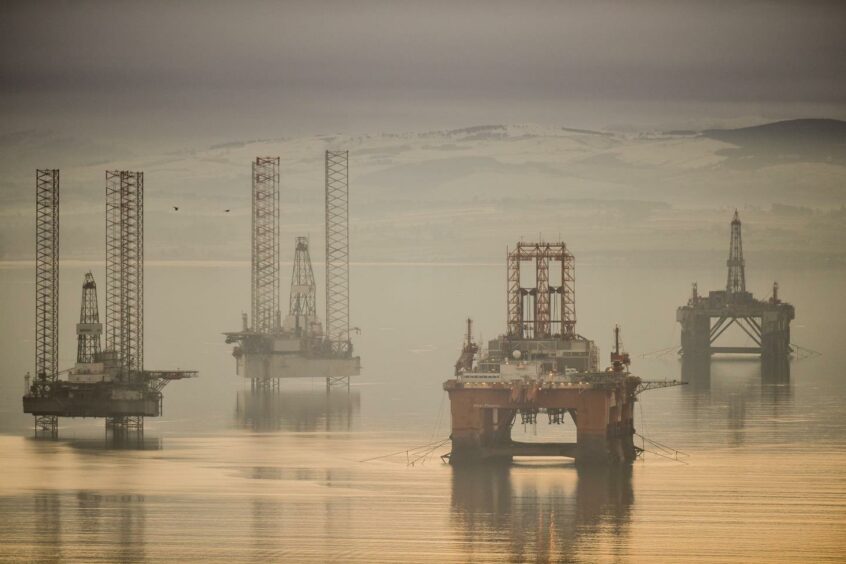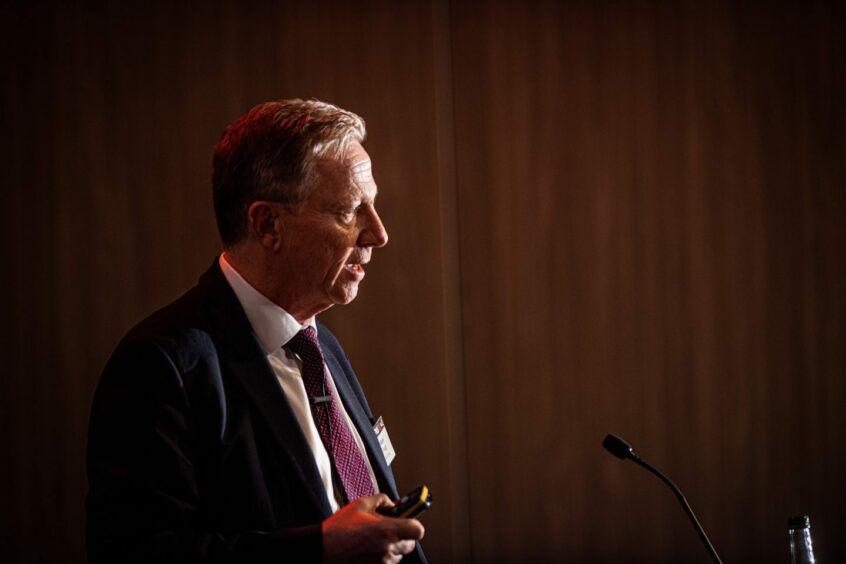
Oil and gas investment “will die” if Labour continues with its windfall tax plans, former Serica CEO Mitch Flegg has warned.
The highly experienced North Sea executive shared his fears about the industry after the new Labour Government pressed ahead with its proposed tax policies. Many in the industry believe UK government plans to raise and extend taxes and remove incentives will cripple investment, destroy tens of thousands of jobs and bring on a wave of decommissioning that will have huge implications for tax revenues.
“If it is some sort of ideological issue here that they want to stop oil and gas production for net zero or for green reasons then they are going the right way about it,” said Flegg.
“But we do not have the alternative energy sources or supplies at the moment and we are reliant upon oil and gas and we’re just going to lose that.”
This comes as exchequer secretary to the Treasury, James Murray, is set to appear in Aberdeen to discuss taxation policy with the city’s oil and gas industry leaders.
Last week the newly instated UK government rolled out changes to the already controversial energy profits Levy (EPL), or windfall tax.
The hike in rate, ensuring that North Sea producers pay 78%, and the abolition of the fiscal policy’s investment allowances led to an outcry from those who champion the UK’s oil and gas sector. Changes are due to come into force in November.
Flegg, who has over 40 years of industry experience with firms such as Schlumberger (now SLB) and Shell, described the change in tax policy as “incredibly short-sighted and incredibly self-defeating,” in a conversation with Energy Voice.
He explained: “If we continue with this EPL on UK producers, we will kill investment in the UK.”
He echoed the sentiment of trade body Offshore Energies UK (OEUK), saying that the policy changes will put “200,000 jobs in jeopardy” as the government’s plans “will kill our supply chain”.
“We’ve got a world-class supply chain, it’s brilliant, and we will drive it out of this country. I just personally do not believe that the EPL will realise the tax revenue that that the government thinks it’s going to.”
Elephants called decommissioning
The chairman of Serica Energy, a man that Flegg worked closely with during his time as the firm’s CEO, recently said the industry was in a “nosedive” heading for a “herd of elephants” – a reference to the liabilities facing government if North Sea firms are forced to decommission assets early.
David Latin warned production will “nosedive off the cliff if we take the investment away and at the bottom of the cliff there’s a herd of elephants waiting and those elephants are called decommissioning.”
When asked what his thoughts were on Latin’s comments, the man who spent six years as Serica CEO said: “He talks a lot of sense.”
Latin explained: “Investments push decommissioning into the distance,” adding that the “elephants” will be “eating up the tax revenues as a large share has to be paid for by the government.”
Flegg fears that losing investor confidence in the UK’s oil and gas market is a “one-way street.”
He said: “We’ll lose jobs, companies will stop investing because you cannot invest in this environment and then for the infrastructure will be shut down and it’s a domino effect that’s irreversible.
“Once we start shutting down infrastructure you can never get it started again. This is an irreversible decline and the industry, as far as I’m aware, hasn’t been properly consulted on all of this. I mean, I really can’t think of anything good to say about it at the moment.”
The concern isn’t for October, it’s now
Some industry commentators have said that there is worry about what will come of Labour’s first budget on 31 October, but Flegg said: “My main concern is now.”
“We’re talking as if everything is going to be laid out and everything is going to be okay in October,” he added.
“But right now, we’re still at the start of August and there is just ongoing uncertainty about the industry.
“So my guess is that people are not making investment decisions right now because they’re everyone’s going to say, well, we’ve got to wait until November until we know what the rules of the game are.”
He said that this uncertainty is what “kills” projects, as he explained that some development will be “cancelled or at best delayed.”
This is something the UK has already seen with NEO Energy’s Greater Buchan Area redevelopment being put on hold amid uncertainty.
Last week Jersey Oil and Gas said it will “carefully consider” the impact of the EPL changes to its Greater Buchan Area joint venture with Serica Energy and NEO Energy.
The firm added that the full implications will “only be clear when the level of capital allowance claims available as deductions to the EPL are provided in the October budget”.
Flegg argued that what any industry, including oil and gas, needs is “fiscal certainty.”
Does Labour understand global energy balance sheets?
To add insult to injury, Flegg feels there is a lack of understanding from Keir Starmer’s government around the profits of oil firms.
“The government referred to the extraordinary profits of oil and gas companies and I don’t get that. I don’t see where these extraordinary profits are right now, they’re certainly not coming from the UK.”
One criticism that is often levelled at the industry is the disparity between headline profits, of which there have been record-breaking years as of late, and the amount of tax paid in the UK.
The defence of this is that the big firms which often face criticism earn these profits overseas.
He added: “I don’t see those profits being derived from UK production, I just don’t see how they can believe that, and the investment is just going to die if we have that attitude.”
Serica has previously hinted that, like other North Sea independents like Harbour Energy, it could seek to invest in oil and gas elsewhere.
Harbour picked up Germany’s Wintershall Dea as part of a £11.2 billion deal as it rallied against the then Tory government’s EPL.
Flegg said that if oil firms begin to up sticks and move overseas “it’s the UK supply chain that that will lose.”
To these claims, an HM Treasury spokesperson said: “We are extending and increasing the Energy Profits Levy, and closing its core investment allowance, to ensure oil and gas companies contribute more towards our clean energy transition.
“We will work with the sector to ensure the transition over the next decades does not jeopardise workers, starting with Great British Energy, which is set to create thousands of jobs.”
Supply chain impacts and vessel migration
However, Flegg does not buy government assurances. Risking the UK’s “world-class supply chain” is one of the worst impacts the Labour government’s changes to the windfall tax can bring.
He argued: “Those companies that are that are providing the services providing the maintenance, providing the logistics, providing everything we need in the UK, they’re the companies that will be lost.
“That’s why I say it’s irreversible because once you lose that world-class supply chain then if in two years’ time, companies decide ‘we wanna go back and work in the UK again’ because if the government changes its mind and encourages oil and gas it’s going to be too late because we would have lost that ability.
“We would have lost what we’ve built up over the last 50 years, which is a world-class industry.”
Expertise and jobs will not be the only thing lost by the UK industry if investment dries up, the vessels that are integral to North Sea operations will also move to more stable overseas markets.
He said that rigs, pipelay vessels and those that perform subsea hook-ups are what the UK stands to lose.
Flegg said that migration “has been happening for the last few years”.
“We’ve seen for the last few years that the availability of equipment, vessels and skills has been getting less available and this isn’t just happening now.”
Recommended for you


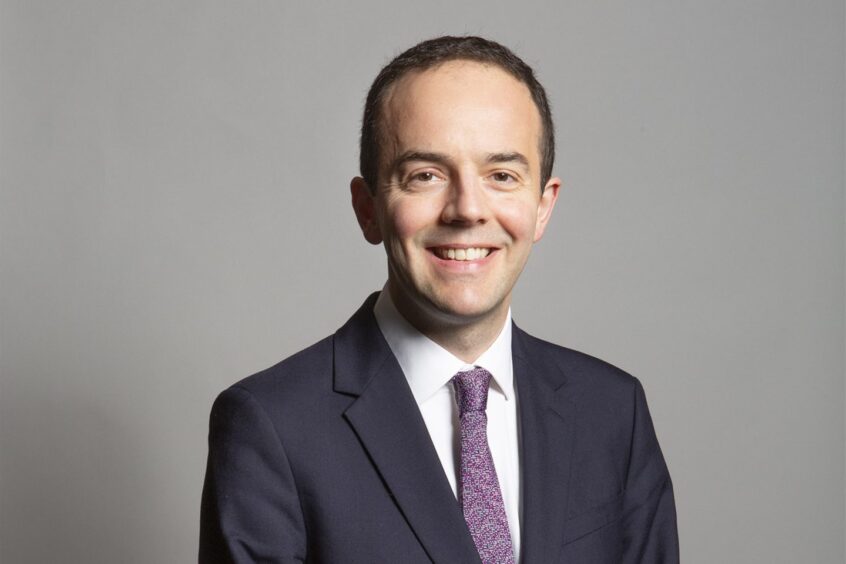 © Supplied by UK Government
© Supplied by UK Government © PRESS AND JOURNAL
© PRESS AND JOURNAL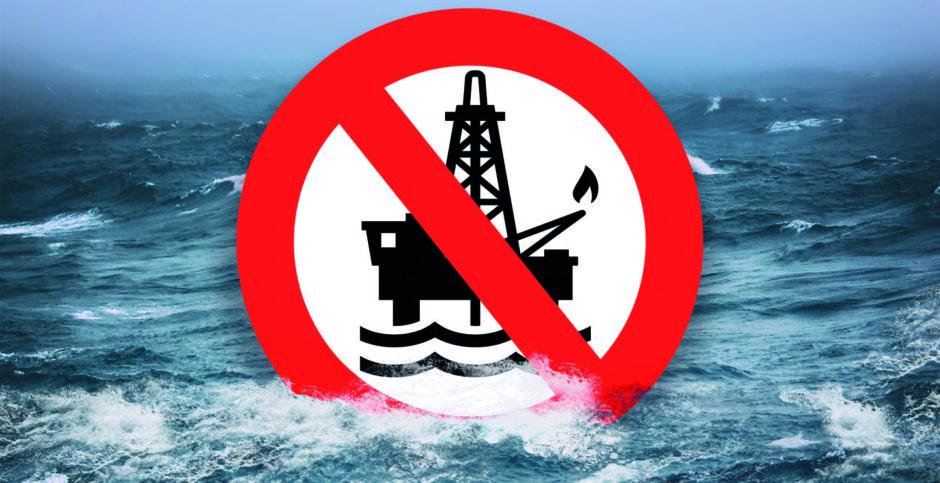 © Supplied by Roddie Reid/DCT
© Supplied by Roddie Reid/DCT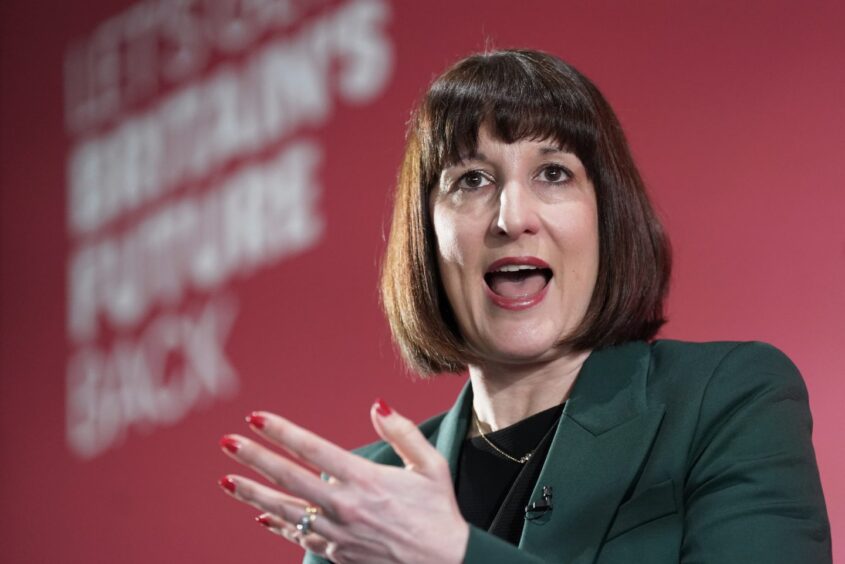 © Supplied by Stefan Rousseau/PA W
© Supplied by Stefan Rousseau/PA W